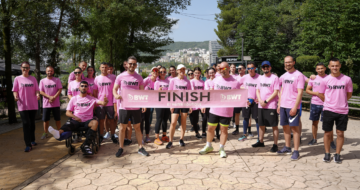The Power of Grey Water: Conserving Resources for a Sustainable Future
In a world where water scarcity is becoming a pressing issue, the concept of grey water recycling is gaining significant attention. Grey water refers to relatively clean wastewater generated from household activities such as bathing, washing dishes, and laundry.
What is Grey Water?
Grey water is the used water from sinks, showers, tubs, and washing machines. This type of water makes up about 50-80% of a household’s wastewater. It’s important to note that grey water does not include water from toilets, which is referred to as black water and contains higher levels of contaminants.
Sources of Grey Water:
- Bathroom sinks and showers: Water from these sources typically contains soap, hair, and body oils but is still relatively clean.
- Laundry: Wash water from clothes can be reused, though it may contain detergents and dirt.
- Kitchen sinks: This can be a bit trickier due to the presence of food particles and grease but can still be treated for reuse.
Unlike black water, which comes from toilets and is heavily contaminated, grey water can be treated and reused for various purposes, thereby conserving our precious freshwater resources.
The Importance of Grey Water Recycling
Recycling grey water offers numerous environmental, economic, and social benefits. Here’s why it’s important:
1. Water Conservation
Water scarcity affects billions of people around the globe. Recycling grey water reduces the demand on freshwater supplies, making more water available for drinking and essential needs. By reusing grey water for non-potable purposes such as irrigation and flushing toilets, households can significantly cut their freshwater consumption.
2. Environmental Protection
Reducing the volume of wastewater entering our sewage systems lowers the burden on wastewater treatment facilities. This, in turn, decreases the risk of untreated sewage being released into natural water bodies, thus protecting ecosystems and reducing pollution.
3. Economic Benefits
Implementing grey water recycling systems can lead to substantial cost savings. Households and businesses can reduce their water bills by reusing grey water for activities like irrigation and toilet flushing. In areas with high water tariffs, these savings can be quite significant.
4. Increased Sustainability
Grey water recycling contributes to sustainable living practices. It encourages mindful water use and promotes a circular economy where resources are reused and recycled. This aligns with global sustainability goals and helps communities become more resilient to water shortages.
5. Reduced Strain on Infrastructure
By decreasing the amount of wastewater that needs to be treated, grey water recycling can alleviate pressure on municipal sewage systems. This can extend the lifespan of existing infrastructure and delay the need for costly upgrades or expansions.
How to Implement Grey Water Recycling
1. Simple Systems for Home Use
Homeowners can start with basic systems such as using buckets to collect shower water for garden use. More advanced options include installing grey water diversion systems that route water from sinks and showers directly to irrigation systems.
2. Commercial Systems
Larger grey water recycling systems can be implemented in commercial buildings and communities. These systems often include treatment processes to ensure the water is safe for reuse in toilets, landscaping, and even cooling towers.
3. Treatment Methods
Grey water must be treated before it can be reused, especially for purposes like irrigation where human contact is possible. Treatment methods can range from simple filtration and sedimentation to more advanced biological and chemical treatments.
Grey water recycling represents a practical and sustainable solution to the growing global water crisis. By understanding what grey water is and recognizing its potential, individuals and communities can make significant strides in water conservation, environmental protection, and economic savings. As we continue to face water challenges, embracing grey water recycling can help us move toward a more sustainable and resilient future.
Latest insights & stories

VERKEERSVEILIGHEID
Sinds 2018 is het aantal verkeersslachtoffers in Vlaanderen opnieuw gestegen. Momenteel stagneren de cijfers, maar het risico op ongevallen met letsels blijft groot voor kwetsbare weggebruikers in Vlaanderen. En dat terwijl het verkeer veilig moet zijn voor alle gebruikers en modi. We willen hier verandering in brengen door te focussen op transparant beleid, trainingen rond veilig gedrag, infrastructurele verbeteringen, wetgeving en handhaving.

Wat is er nodig voor een meer circulaire bouwsector? Inzichten van Sien Cornillie, expert circulariteit bij NAV
NAV, of "Netwerk Architecten Vlaanderen," is een professionele organisatie voor architecten in Vlaanderen. Ze biedt diverse diensten aan, waaronder professionele ontwikkeling en belangenbehartiging voor architecten. Daarnaast bevordert NAV ook netwerkmogelijkheden en geeft het advies over juridische, technische en managementaspecten. Het netwerk werkt momenteel aan een standpuntennota rond circulariteit. We spraken met Sien Cornillie, expert circulariteit bij NAV, die in dit interview uit eigen naam spreekt.

A Global Movement: The World Unites in a Pink Pledge for Clean and Sustainable Water
5,000 participants. 32 countries. €30,000 funds raised. And that's just the beginning.
Picture this: One step that sends ripples across the globe, transforming lives and creating waves of change. You might wonder, how can such a simple action for most of us have such a profound impact?